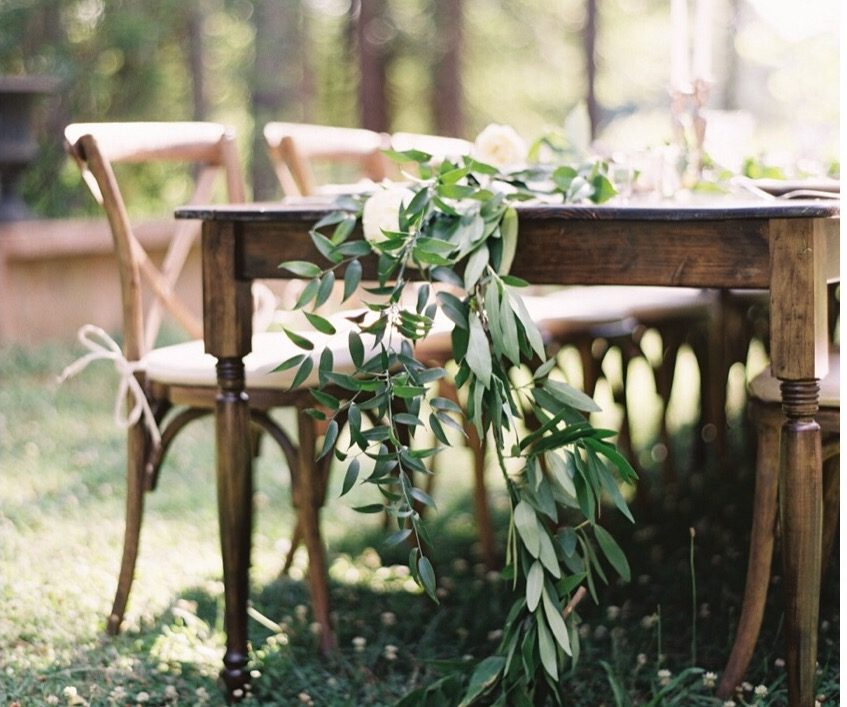
Through the years we all will be together, if the Fates allow
Hang a shining star upon the highest bough
And have yourself a merry little Christmas now
No matter where life took me, I always managed to make it home for Christmas. My family did it right. The music, the movies, and the meals were all tied up together with our traditions, making for a perfectly messy holiday that I wouldn’t miss for the world. Even the arguments were predictable, their comfortable familiarity adding to the beauty of it all. We were together. That was the important part.
Some years we had people camped out all over every square inch of floor space. Other years it was just the seven of us: my parents, two brothers, two sisters, and me. The year my brother was deployed, his absence felt huge. Small, quiet holidays were never our speed. We were always The More The Merrier people.
Five years ago, we spent our first Christmas without our dad. He died suddenly and unexpectedly earlier that year. We all knew the holidays would be hard, but we were determined to hurt together and try to make the best of it. Despite our best efforts, nothing felt right.
As Joan Didion writes in her book The Year of Magical Thinking, “A single person is missing for you, and the whole world is empty.”
We ate the same things and did the same things, but it all seemed broken.
It still does, in a lot of ways. We are still learning how to live without him.
One thing I have learned about grief is that it ebbs and flows. The five stages that everyone talks about are not things you travel through in a linear fashion. Time has helped; the frequency and intensity of grief is not as pervasive as it once was. But some days and some events trigger my emotions more than others, making the grief feel just as fresh as it was in the beginning. Holidays do that for me. We used to spend them together. They’re just not the same without him.
My dad and I had our own Christmas tradition. Every year, at some point during the holiday season, we would turn off all the lights in the house except for those on the Christmas tree, and lay on the floor, listening to Michael W. Smith’s 1989 Christmas album classic. Though the stroke that took his life happened in May, it felt like the right thing to do as I was saying goodbye. I will never forget how it felt to curl up beside him in his ICU bed, knowing we were carrying out our tradition for the last time.
Two years ago, it was my turn to be gone. I spent the holidays overseas, deployed to Afghanistan. During my deployment, I was often struck by the incredible similarity between the emotions I suffered while I was separated from my husband and baby girl, and the grief I carried from losing my dad. The heart has a limited capacity for understanding time. Separation is separation, and it feels the same, whether temporary or permanent.
You can grieve the loss of people, even when you know they’re coming back.
As I have wrestled with and carried my own grief, I have often been painfully reminded of what a lonely thing it is to miss someone. Most people are generally quite uncomfortable with suffering; especially the suffering of others. I found that a lot of the time, people didn’t know what to say to me. They knew there was no way to truly ease the pain, and words just seemed to fall short. Prior to experiencing my own loss, I had no idea how to respond either. Fear of saying or doing the wrong thing is paralyzing, and more often than not, we end up doing and saying nothing.
While there is nothing we can say or do to fix the hurt that comes with missing someone, saying or doing nothing only makes it worse.
Watching someone else hurt isn’t easy. We want so badly to take away the pain, to fix the problem. It’s tempting to quip blithely about how this too shall pass, but these misplaced kindnesses can ring hollow. Better to give the hurting the dignity of rediscovering hope on his or her own terms. More than platitudes or proposed solutions, those who grieve need your presence. I once read a Sojourners article that put it beautifully: “What we need in the aftermath is a friend who can swallow her own discomfort and fear, sit beside us, and just let it be terrible for a while.” It takes just as much courage to sit beside those who are suffering as it does to carry the pain yourself.
To this day, when the people I love share a memory of my dad, they will often preface their story with an apology, afraid to bring him up at a time when I am not thinking of him, afraid to inflict any more hurt.
I remember having the same fear, before I knew grief. Here on the other side, I now know how impossible it is to hurt someone by surprising them with a memory. Those we miss are rarely out of our thoughts for long, and honoring their memory is always preferable to pretending they were never there.
The holidays are intended to be a season of togetherness. We dedicate time to spend with the ones we love. But loss is every bit as ubiquitous as love. Families everywhere are missing someone. Whether separated by a permanent loss, or something more temporary, the empty seat at the table serves as a painful reminder of who isn’t there.
As hard and awkward as it is, bring it up. Remember those who are absent. We can grieve them even if we know they will eventually return.
Grief and love are inextricable; one cannot exist without the other. Though incredibly painful, grief is the beautiful proof that we loved much, loved well.
Honor the great love we carry for the ones we miss by acknowledging our grief. By doing so, you shoulder some of the burden yourself. And this simple act of loving presence transforms something heavy into something beautiful.
Through love all pain will turn to medicine.
-Rumi











How do we live in the same city and haven’t met?
I LOVE this blog so much.In dealing with any grief nothing is the worst! Im so sorry for your loss. This was so beautifully written and likewise the life of your father…a life beautifully written. Thank you for sharing.
Comments are closed.